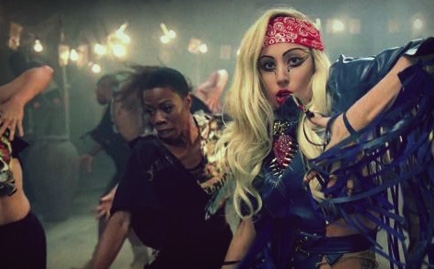
Too often, Christian books merely amplify the culture war, settle for shallow optimism or regurgitate spiritual platitudes. In contrast, pastor Richard Dahlstrom’s new book, The Colors of Hope, visualizes a life with God that is more creative adventure than what he calls “private morality.” Dahlstrom sat down with RELEVANT to talk about finding our voice, non-Christian influences and what the colors of hope look like in motion:
What inspired you to write The Colors of Hope?
I don’t think we’ve ever lived in more polarized times. Theologically, politically, economically, socially, in every way, it feels like the middle ground is disappearing. Boredom and cynicism are ripe among God’s people, and I have the strong, passionate sense that it doesn’t have to be that way. We don’t have to spend our days arguing about who’s in heaven, who’s in hell, Neo-Calvinism, Emergent, all these categories. Not only do we not have to spend our days arguing about it, but we don’t have to let that stuff disillusion us. We can set it aside and get on with our calling, which is actively being a blessing in the world.
In the chapter about finding our voice, you write that it is "less like a treasure hunt and more like working the soil of a mysterious garden you didn’t plant." That’s an intriguing concept. Can you explain it?
I go back to this notion that since God created us, he knows how we’re wired better than we do. I think this is an important message for the RELEVANT crowd, because that crowd, in general, would say “follow your passion, you’ll find your calling.” I’m not so sure about that. My passion was architecture, my passion was music and now I’m a pastor, Bible teacher and writer. How did that happen?! If I had not said yes to some things that I wasn’t passionate about at the time, I would never have discovered I was made for this. That’s why I say it’s like a mysterious garden, because God has already planted a seed in me and I’ve got to figure out how I nurture the soil of my heart through intimacy [with God]. Out of that intimacy, I believe we find our voice.
That’s a big discussion now. A lot of people will tell you the Spirit is the prompting that you already feel, so just do that and hammer that, because that’s God work. But maybe that’s all within a personal blind spot. It implies that we understand ourselves better than we do, and that we don’t need God as much as we do. Maybe we need God to rattle us in one of His mysterious ways.
I think the Bible reinforces that. Here’s Paul: “I want to go to the Jews!” Here’s God: “No, no, you’re going to the Gentiles.” What if Paul would’ve said, “No, that’s not my passion.” Well, it wasn’t his passion, but it became his passion in obedience.
You quote theologians such as N.T. Wright in the book, but you also quote Gandhi and Nietzsche. How do you respond to those Christians who will grimace at you for having what are considered to be non-Christian influences?
In Ecclesiastes it says God has placed eternity in the hearts of men. That means whatever I think of Gandhi’s eternal destiny, he can speak truth. Nietzsche can speak truth. Bill Gates can speak truth. It’s incumbent on the believer not to separate from the world, but to live in the world and have discernment. One of the alarming things is our tendency to listen to someone, and I’m not listening to hear, I’m listening to label. So I’m listening to you, and pretty soon I’ve got you. “Oh, liberal, or conservative, fundamentalist, Democrat, Republican, saved, unsaved.” The art metaphor in the book actually speaks to this problem. There’s so much I never saw because I just labeled it and moved on. We do this with people all the time.
I think God has things to show me through Gandhi, through Buddha, through Nietzsche. Do I think Jesus is the only way? Yes! Is He the door? Yes! However, I’m not called to separation, I’m called to discernment.
The colors, as you call them—mercy, justice and love—can be difficult to define within one’s own daily routine. Can you give us an example of what these things look like in action?
Absolutely! I think of my friend Paul who was a doctor in Friday Harbor. He had a little 13-acre farm. Then at the age of 45, he sold his farm, sold his medical practice and now in his 60s, wherever there is a refugee camp in the world in a state of dire need, Paul’s there. Right now he’s in Jordan, serving Syrian refugees as they come across the border. My friend Walter is in Ghana (is) buying women out of sexual slavery, and then educating them and giving them job skills. So there are big ways, but I think there are little ways, too. I have a friend here in town who had breast cancer and now is passionate about walking alongside women. Here she is, living in the city, living life, but actively serving and blessing, mentoring young gals, teaching in a Bible study at her church, hospitable with her neighbors. These kind of things make Christ live in this world. Not our teaching, but our actual embodiment of the character of Christ.
Do you believe that the church is too vocal?
Here’s the short answer: yes. Partly because we live in a world where ‘know’ is defined as this academic, objective gain, right? ‘Know’ isn’t really ‘know’ in the Bible until it changes my priorities: my time, my relationships, my money, all of those things. I do think, though, the change of living is a byproduct of the change of thinking. Which is why we need words. Which is why we need teaching. But if it ends there? Disaster. Because we’ve convinced ourselves that we’ve grown and that we’re transformed because we’re thinking differently. And we’re not really transformed until we live differently.
Ian Ebright is a former film critic who now writes about faith, life, culture and human rights. You can read more by visiting his site The Broken Telegraph, or follow him on Facebook and Twitter.






















